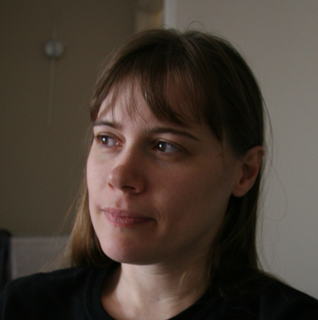A Quote by Susan Beth Pfeffer
Back in the time when life was easy, the Internet would have told me what I needed to know. The great thing about the Internet was it didn't care why you were asking.
Related Quotes
You don't owe the internet your time. Your time is yours, whatever time you give the internet is a gift. The internet does not know this, and it will never learn. Time is the most precious thing you have. More than money, or land, or prestige, or any valuable thing you can think of, a life is measured in time. The sooner you walk away from a useless fight, the more of it you get to have.
The thing I have learned, especially in the Internet age, probably the easiest thing in the world is to declare that something is not funny. I mean it's not actually humor to say something is not funny, but it is viewed by a lot of people - and by that I mean mainly snarky young Internet men - as a kind of humor in and of itself is putting down other people's efforts at humor. And I don't care that much anymore about that because I know how easy that is to do.
The Internet goes doot-doot-doot - it goes sideways. There's nothing hierarchical about it. And the best thing about it is also the worst thing about it, which is there are no gatekeepers on the Internet. Consequently, there's a whole lot of bad information on the Internet. But I think that sorts itself out over time.
If we were a culture of high-risk alcoholics, and suddenly we had Jack Daniels piped into our houses, we would be feeding that fire. Social networking, and the internet as a whole, seems to have simply landed in an extremely fertile place in an extremely fertile time in history, when we all have these narcissistic tendencies anyway - you can go further back into the self-esteem movement, and Dr. Spock, and the 'everybody gets a ribbon at the track meet' sort of thing, which preceded the internet - and then you drop the internet into the middle of this, and we've all gone haywire.
It would be really great if someone would invent a new Internet with the specific purpose of not making money off of it, but making it what it originally was, a free marketplace of ideas, and there are still aspects of the Internet that are that. Wikipedia, essentially, is still the bastion of the original ideals of the Internet.
When I was your age, we didn't have the Internet in our pants. We didn't even have the Internet not in our pants. That's how bad it was. I know I sound like my grandfather right now. We didn't have teeth! There were no questions marks, we just had words! What was I talking about? The Internet...Not only can you not plan the impact you're going to have, you often won't recognize it when you're having it.
Our children are exposed to 10, 20, 30 times the number of words that our great-grandfathers were exposed to. We're exposed in a single day or two to more horror on our Internet Web pages than our great-grandfathers were exposed to in decades of living. We have not created modern minds for that modern world. Science and technology has just dumped it on us. And I think people yearn for it. I think you see it in what's popular. Why are people wanting to learn about meditation and talking about a purpose-driven life? It's because they know more is needed in the modern world.
Everyone should be concerned about Internet anarchy in which anybody can pretend to be anybody else, unless something is done to stop it. If hoaxes like this go unchecked, who can believe anything they see on the Internet? What good would the Internet be then? If the people who control Internet web sites do not do anything, is that not an open invitation for government to step in? And does anybody want politicians to control what can go on the Internet?



































